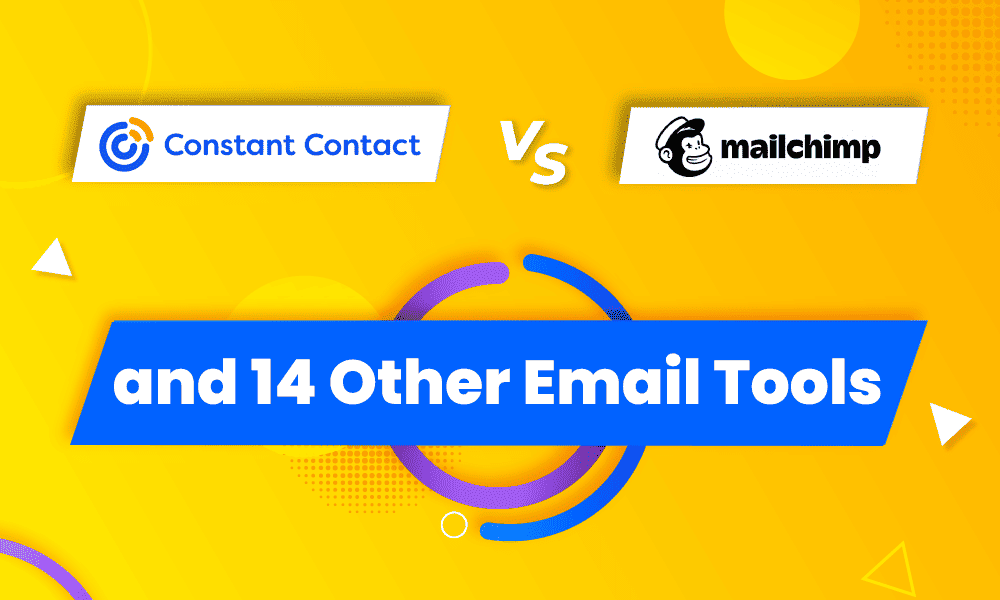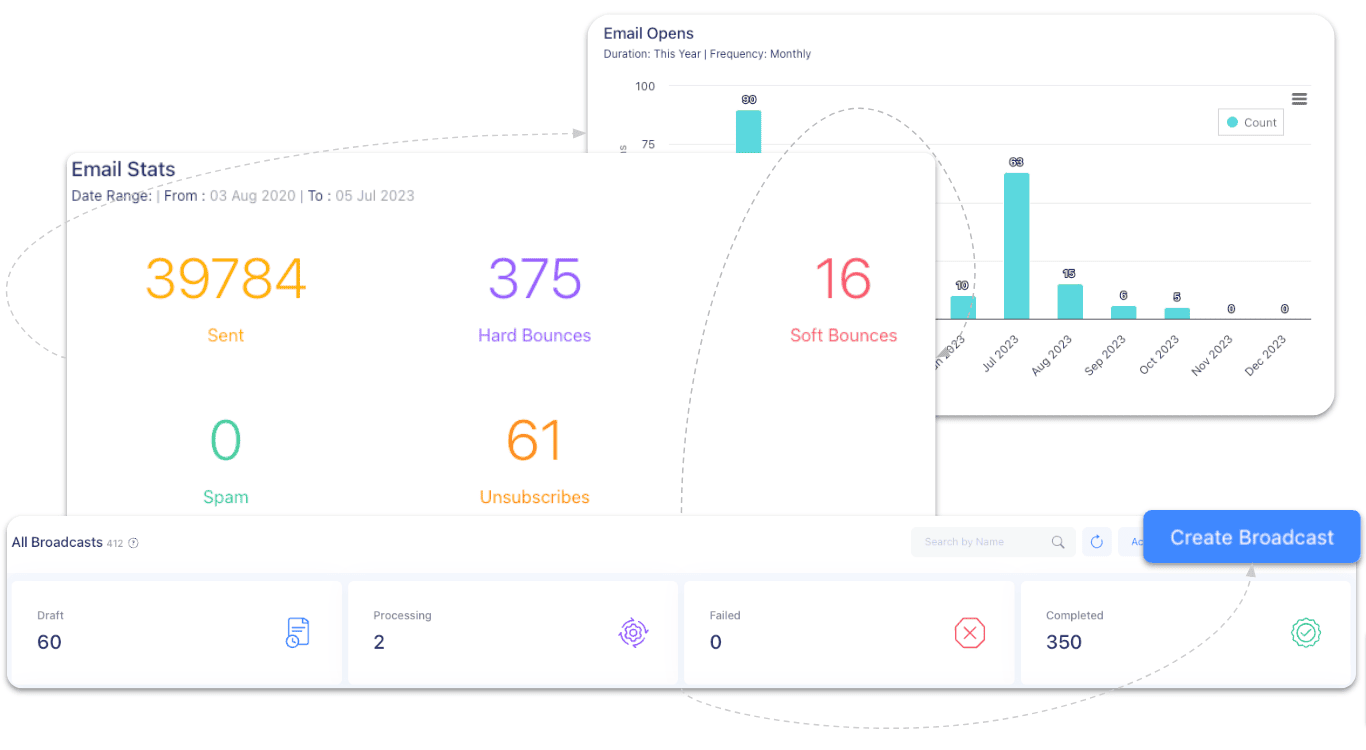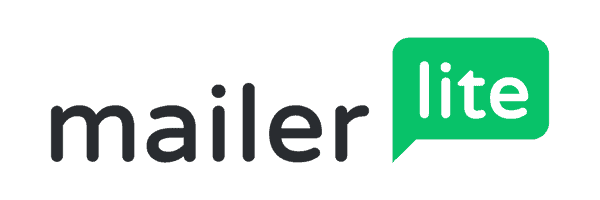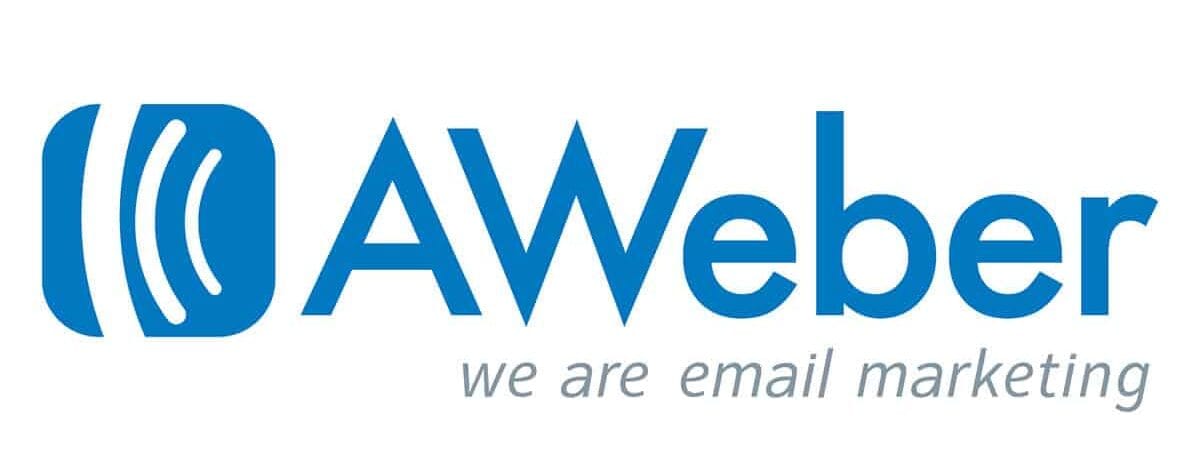Constant Contact and Mailchimp are two popular email marketing service providers with varying capabilities and features. Both have unique functionalities, from designing professional templates to building automated workflows, creating attractive landing pages, and having good customer service tools.
Constant Contact is a less complex email marketing tool for beginners who want simple and easy-to-use templates, automation, and more.
Mailchimp, on the other hand, is best for experienced marketers who need advanced tools for reporting, automation, and email building.
In this blog post, you get a detailed comparison of Constant Contact vs Mailchimp for features like contact management, reporting, automation, templates, and, of course, pricing.
In addition to that, we’ve also compared Constant Contact with 15 other email marketing solutions to help you find the best option for your business.
Table of Contents
Constant Contact vs Mailchimp
Here’s a quick overview of both tools.
Constant Contact overview
Constant Contact is a simple but powerful email marketing and automation tool that enables you to engage and connect with your customers across various channels. Founded in 1995, it was designed to help small business owners run successful email marketing campaigns.
Since then, it has grown into a robust digital marketing solution that supports great functionalities like A/B testing, SMS marketing, contact management, and many more.
Mailchimp overview
Mailchimp is a comprehensive email marketing platform that lets you craft professional newsletters, send them to your target audience, and automate email marketing campaigns.
It is a popular email marketing solution with robust features like contact segmentation, A/B testing, reporting and analytics, pre-built journeys, etc.
Since its inception in 2001, it has grown from a simple email platform to a comprehensive marketing solution.
Read also: Mailchimp vs Constant Contact — What’s Right for You?
Key Features of Constant Contact and Mailchimp Compared
| Feature | Constant Contact | Mailchimp |
| Contact management |
|
|
| Templates and design |
|
|
| Marketing automation |
|
|
| Reporting and analytics |
|
|
| A/B testing |
|
|
| Customer support |
|
|
| Pricing |
|
|
Read also: Constant Contact vs Mailchimp vs EngageBay — Which Tool is Better?
1. Contact management
Constant Contact supports a wide array of functionalities that help you manage your email lists. These features can enable you to add contacts manually and import your lists from platforms such as Excel, Outlook, Salesforce, etc.
Moreover, Constant Contact allows you to store your customer data for proper segmentation and personalization. It uses customer behavior, location, interaction, preferences, and interests to help you send the right messages to the right recipients.
The dashboard is intuitive, and the features are simple and easy to use.
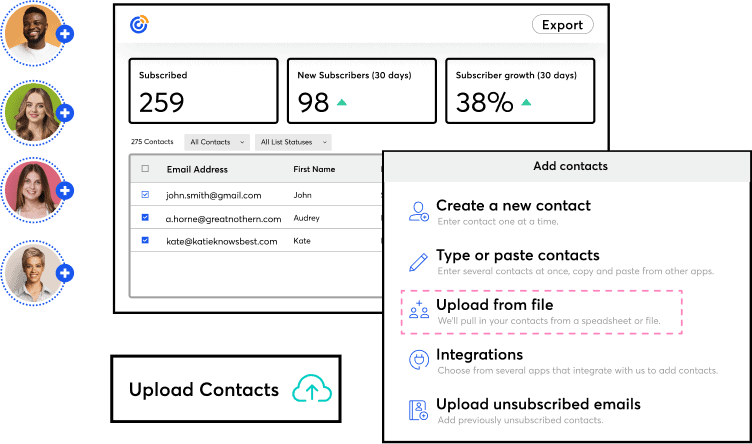
Mailchimp, on the other hand, has more complex and advanced features for list management. As a marketing solution with integrated CRM capabilities, it lets you store customer data and segment contacts into different lists.
The web-based solution uses tags, segments, and groups to help you send the right emails to the right audience.
For proper segmentation, the audience dashboard provides customer data insights based on your customer interaction and behavior. Other list management features include customer profiles, predicted demographics, predictive commerce insights, etc.
Read also: What is Constant Contact? Features, Pricing, Reviews, and Alternatives
2. Templates and design
Constant Contact offers hundreds of simple, pre-built email templates to simplify marketing campaigns. They are customizable, flexible, and easy to edit, making them a suitable option for small businesses across various industries.
The templates are mobile-responsive and can be customized for various purposes – newsletters, emails for holidays, sales emails, etc. The beautifully designed templates make your emails attractive and enhance your readability and click-through rate.
There’s also an option to build custom emails with HTML codes.
The downside of Constant Contact’s templates feature is that some of the templates are either too basic or out of date.

Mailchimp also supports hundreds of professional, pre-designed email templates. It provides flexibility and customizability options that let you create emails for a wide variety of occasions. These emails may include onboarding emails, newsletters, product release updates, etc.
Like Constant Contact, Mailchimp lets you import custom HTML templates.
However, Mailchimp offers more importing options: (1) pasting your HTML code, (2) importing HTML files, and (3) importing zip files. Also, Mailchimp’s email templates are a bit more polished than Constant Contact.
Read also: What is MailerLite? Reviews, Pricing, Pros and Cons, Alternatives
3. Marketing automation
Constant Contact offers basic and easy-to-use features for streamlining your marketing campaigns and putting your emails on autopilot.
It lets you set up automated email series for welcome emails, abandoned cart emails, and birthday and anniversary emails. Although this automation is easy to set up, they have limitations and are only available with the Plus plan.
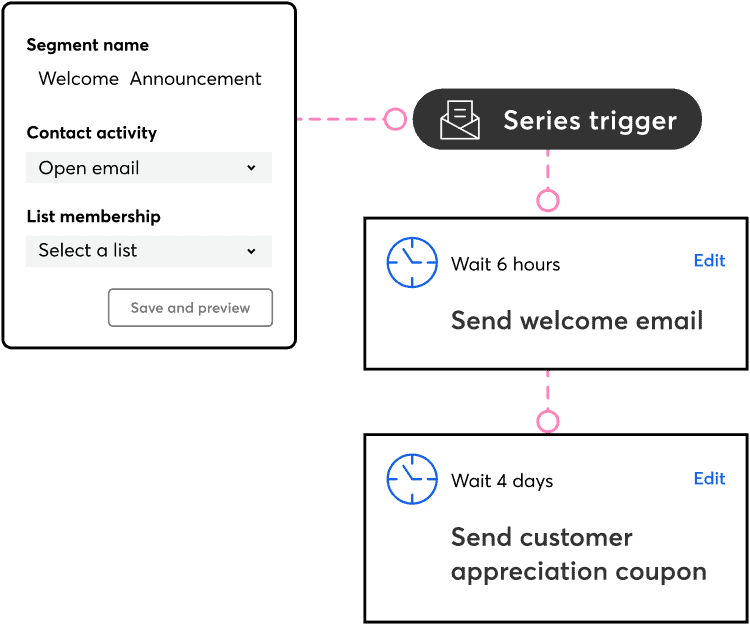
Conversely, Mailchimp provides a more robust automation system with more flexibility and customizability options. It supports a wide array of pre-built journeys for sending welcome emails, abandoned cart emails, pop-up forms, birthday emails, promotional emails, etc.
Mailchimp also lets you send automated transactional emails to keep your customers informed and updated on purchase activities.
Read also: Constant Contact Pricing 101 — Plans, User Reviews, and Comparison
4. Reporting and analytics
Constant Contact has great email tracking features for monitoring your email marketing performance to see what’s working and what’s not. With these features, you can see your email open and click-through rates.
Although it lacks more advanced reporting functionalities, it is straightforward and has the basic features needed to help you track and analyze valuable metrics.
These features include engagement reports, email marketing campaign comparisons, click-tracking heat maps, click segmentation, mobile open rate, and on-the-go tracking.
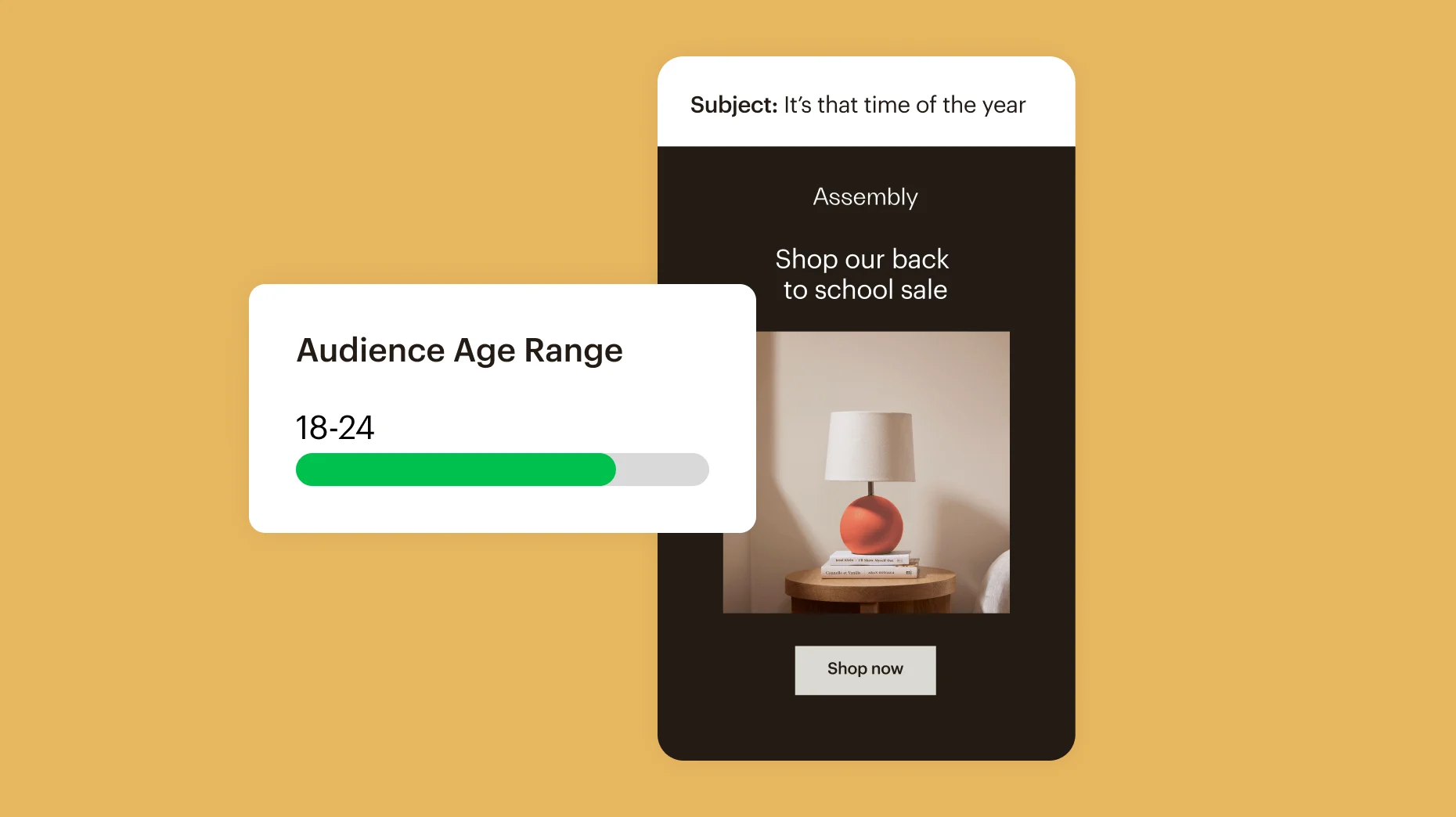
Mailchimp’s reporting feature is more comprehensive and advanced but may be a bit complex for new users to navigate. It supports great tools for tracking your performance and optimizing your emails for better results.
With Mailchimp insights, you get real-time customer data to help you understand how your customers interact with your emails. In addition to the AI-assisted optimization tools, this lets you refine your marketing campaigns to attract more customers and drive conversions.

Read also: Constant Contact Pros and Cons to Help You Choose Wisely
5. A/B testing
Constant Contact’s A/B testing tool only works for subject lines. It lets you test two subject lines based on length, audience, and type of email. Moreover, it offers valuable recommendations that help you boost your open rate and increase engagement.

Unlike Constant Contact, Mailchimp supports A/B testing functionalities not only for subject lines but also, for content, send time, and ‘from’ names.
Moreover, it lets you test up to three variations for your campaigns, and if you upgrade to the premium plan, you can test up to eight campaign variations (multivariate testing).
Read also: Constant Contact Review 2024: Pros, Cons, Features, Pricing
6. Customer support
Constant Contact offers excellent customer service support without asking for more. It provides email support, a community forum, a knowledge base, and phone support.
You can contact an agent via phone from Monday to Friday (time depends on the location).
Mailchimp, on the other hand, offers Mailchimp Assistant chatbot, email support, 24/7 chat support, and phone support.
Unlike Constant Contact, Mailchimp’s chat and email support are only available with paid plans – the email and chat support is free for new users for 30 days, while the AI-powered chatbot is free for all users.
The phone support, however, is only available with the premium plan. It runs on weekdays (Monday – Friday).
Read also: How Does Mailchimp Pricing Compare To Its Competitors?
7. Pricing
Constant Contact offers three plans: Lite, Standard, and Premium. Pricing for 500 contacts starts at $12/mo for the Lite plan, $35/month for the Standard plan, and $45/month for the Plus plan. As your list increases, you will have to pay additional charges – if it gets to 50,000 subscribers, you can contact sales for a custom quote.
Unlike Mailchimp, it has no free plan but offers a 60-day free trial to access all premium features. Ultimately, the pricing gets relatively cheaper as you scale.
Mailchimp offers better pricing plans for new users and startups. It starts at $13/mo, $20/mo, and $350/mo for the Essentials, Standard, and Premium plans (500 contacts).
As your contacts increase, Mailchimp automatically bills you for overages, and if you have more than 200,000 subscribers, you can talk to the sales team to get a custom quote.
Mailchimp has a free plan that supports 500 contacts, and 2,500 monthly email sends. There are no free trials.
If you’re considering switching from Mailchimp, don’t make a move until you read our article on the best Mailchimp alternatives.
Read also: BigCommerce vs Magento — Features, Pricing, and More Compared
Constant Contact vs 15 Other Email Marketing Tools
In this section, we quickly compare Constant Contact with 15 other email software so that you can decide based on up-to-date info.
1. Constant Contact vs EngageBay
| Feature | Constant Contact | EngageBay |
| Contact management |
|
|
| Templates and design |
|
|
| Blog and social media |
|
|
| Marketing automation |
|
|
| Reporting and analytics |
|
|
| CRM |
|
|
| A/B testing |
|
|
| Customer support |
|
|
| Pricing |
|
|
EngageBay is an all-in-one marketing, sales, and customer support software for small businesses, startups, and solopreneurs. With EngageBay, you get powerful email marketing, automation, sales, and customer support features — all at an affordable price.
Over 86,000 SMBs and solopreneurs worldwide use EngageBay to automate their marketing, improve customer relationships, and sell better — making it one of the best Constant Contact alternatives.
EngageBay key features
- Email marketing
- Marketing automation
- Landing pages
- Email templates
- Lead generation and management
- Personalization and segmentation
- Predictive lead scoring
- Automated email funnels and workflows
- Sales pipeline automation
- A/B testing
- Live chat and helpdesk
- Free CRM
2. Constant Contact vs HubSpot
| Feature | Constant Contact | HubSpot |
| Contact management |
|
|
| Templates and design |
|
|
| Blog and social media |
|
|
| Marketing automation |
|
|
| Reporting and analytics |
|
|
| CRM |
|
|
| A/B testing |
|
|
| Customer support |
|
|
| Pricing |
|
|
HubSpot is a cloud-based customer relationship management (CRM) software with excellent email marketing and automation features. It also supports robust sales, support, operational, and website-building functionalities that let you run successful digital marketing campaigns.
The email marketing feature lets you craft, optimize, and send personalized emails to your subscribers. As an all-in-one CRM solution, you can access your customer data and carry out major inbound marketing processes in one place without moving from one tool to another.
HubSpot key features
- Pre-designed, professional email templates
- Landing pages and sign-up forms
- Marketing automation
- Drag-and-drop email editor
- Email segmentation and personalization
- A/B testing and marketing analytics
- Blog and social media management features
- Integration with HubSpot’s CRM platform to get real-time customer data and insights
Read also: HubSpot Pros And Cons — A Candid Assessment
3. MailerLite vs Constant Contact
| Feature | MailerLite | Constant Contact |
| Contact management |
|
|
| Templates and design |
|
|
| Website Builder |
|
|
| eCommerce |
|
|
| Marketing automation |
|
|
| Reporting and analytics |
|
|
| A/B testing |
|
|
| Customer support |
|
|
| Pricing |
|
|
MailerLite is a simple but powerful email marketing and automation platform for sending newsletters, transactional emails, etc. It also has a website-building feature that lets you build attractive websites and blogs to increase your traffic.
MailerLit supports eCommerce features that enable you to sell your digital products/services and offer paid subscriptions.
MailerLite key features
- Email marketing automation
- Website builder
- Landing pages and sign-up forms
- Email verifier
- eCommerce
- Drag & drop and rich-text editor
- Custom HTML editor
- Pre-built templates with a free image library
Read also: AWeber vs Mailchimp and Other Email Tools
4. ConvertKit vs Constant Contact
| Feature | ConvertKit | Constant Contact |
| Contact management |
|
|
| Templates and design |
|
|
| Marketing automation |
|
|
| eCommerce |
|
|
| Reporting and analytics |
|
|
| A/B testing |
|
|
| Customer support |
|
|
| Pricing |
|
|
ConvertKit is an email marketing platform that allows creators to grow and interact with their audience by sending timely newsletters and selling valuable digital products.
The SaaS-based tool has unique features that have assisted over 500,000 creators, including musicians, coaches, authors, podcasters, YouTubers, etc.
ConvertKit key features
- Landing pages and forms
- Email designer
- Easy email templates
- Sponsor network
- Automated email funnels
- Customizable segments and tags
- A/B testing
- Visual automation
- eCommerce
Read also: 7 ConvertKit Drawbacks and What to Do About Them
5. ActiveCampaign vs Constant Contact
| Feature | ActiveCampaign | Constant Contact |
| Contact management |
|
|
| Templates and design |
|
|
| Marketing automation |
|
|
| eCommerce |
|
|
| Reporting and analytics |
|
|
| Lead scoring |
|
|
| CRM |
|
|
| A/B testing |
|
|
| Customer support |
|
|
| Pricing |
|
|
ActiveCampaign is a customer relationship management (CRM) software that enables business owners to send targeted and automated emails to their customers. It also supports sales and eCommerce features.
The email marketing feature supports broadcast emails, triggered and targeted emails, scheduled emails, email autoresponders, and transactional emails.
ActiveCampaign key features
- Landing pages and forms
- Site tracking
- eCommerce
- Sales and marketing automation
- Lead scoring
- Drag-and-drop email designer
- Split testing
- Audience segmentation
- Reporting and analytics
Read also: ActiveCampaign Pricing and Comparison with Other Alternatives
6. Constant Contact vs AWeber
| Feature | Constant Contact | AWeber |
| Contact management |
|
|
| Templates and design |
|
|
| Marketing automation |
|
|
| Reporting and analytics |
|
|
| Web push notifications |
|
|
| A/B testing |
|
|
| Customer support |
|
|
| Pricing |
|
|
AWeber is an email marketing software that lets you connect with your audience and drive sales by sending timely and personalized emails.
It supports robust email marketing features for lead capturing, email deliverability, email automation, and high conversions. AWeber also provides eCommerce features and web push notifications.
AWeber key features
- Landing page builder
- Email automation
- eCommerce
- Web push notifications
- Sign-up form builder
- A/B split testing
- Pre-built email templates
- Free attractive images (integration with Canva)
Read also: AWeber Pricing, Limitations, Features, Pros and Cons [Tables]
7. Brevo (Sendinblue) vs Constant Contact
| Feature | Sendinblue (Brevo) | Constant Contact |
| Contact management |
|
|
| Templates and design |
|
|
| Marketing automation |
|
|
| Web push notifications |
|
|
| Reporting and analytics |
|
|
| Sales CRM |
|
|
| A/B testing |
|
|
| WhatsApp and Facebook campaigns |
|
|
| Customer support |
|
|
| Pricing |
|
|
Brevo (Sendinblue) is an intuitive digital marketing platform with robust sales and marketing functionalities. Since its inception in 2012, it has developed unique features supporting over 400,000 users across various industries and locations.
The email marketing platform helps business owners run successful digital marketing campaigns and build better customer relationships.
Brevo (Sendinblue) key features
- SMS marketing
- Marketing automation
- Contact segmentation
- Web push notification
- Live chat and chatbot
- Transactional emails
- WhatsApp campaigns and Facebook Ads
- Landing pages and sign-up forms
- Sales CRM
Read also: 5 of the Best Sendinblue (Brevo) Alternatives (Pricing, Advantages)
8. SendGrid vs Constant Contact
| Feature | SendGrid | Constant Contact |
| Contact management |
|
|
| Templates and design |
|
|
| Marketing automation |
|
|
| Email verification |
|
|
| Reporting and analytics |
|
|
| A/B testing |
|
|
| Customer support |
|
|
| Pricing |
|
|
SendGrid (Twilio Sendgrid) is a Simple Mail Transfer Protocol (SMTP) service with powerful email marketing features.
Unlike other email marketing service providers, SendGrid has a robust SMTP and web API that allows you to simplify your email marketing campaigns by setting up custom integrations.
The email marketing software offers unique features that enable you to send bulk emails, set up transactional emails, and integrate with other third-party applications.
SendGrid key features
- Email validation and verification
- HTML and drag & drop email editors
- Deliverability insights
- Email automation
- Email statistics
- Responsive email templates
- Transactional emails
9. Robly vs Constant Contact
| Feature | Robly | Constant Contact |
| Contact management |
|
|
| Templates and design |
|
|
| Marketing automation |
|
|
| Open-generating technology |
|
|
| Reporting and analytics |
|
|
| A/B testing |
|
|
| Customer support |
|
|
| Pricing |
|
|
Robly is a simple email marketing software for small businesses. It provides email marketing capabilities that help you grow your list, increase open rates, improve deliverability, and track valuable email metrics.
The open-generating features like RoblyAI, RoblyENGAGE, and OpenGen separate Robly from other email platforms, as they let you deliver timely, targeted, and personalized messages.
Robly key features
- Contact segmentation
- A/B testing
- Mobile responsive email templates
- Email campaign builder
- Landing page builder
- Drag-and-drop editor
- Actionable analytics and reporting
10. Marketo vs Constant Contact
| Feature | Marketo | Constant Contact |
| Contact management |
|
|
| Templates and design |
|
|
| Marketing automation |
|
|
| Account-based marketing (ABM) |
|
|
| Reporting and analytics |
|
|
| A/B testing |
|
|
| Customer support |
|
|
| Pricing |
|
|
Marketo (aka Adobe Marketo Engage) is an advanced SaaS-based email marketing and automation tool owned by Adobe.
It supports robust features that let you generate leads, drive sales, and create better customer experiences. Its advanced functionalities make it suitable for mid-sized to enterprise organizations.
Marketo key features
- Marketing automation
- Content personalization
- Cross-channel engagement
- 360° customer view
- Account-based marketing (ABM)
- Digital advertising
- Advanced journey analytics
11. Klaviyo vs Constant Contact
| Feature | Klaviyo | Constant Contact |
| Contact management |
|
|
| Templates and design |
|
|
| eCommerce |
|
|
| Marketing automation |
|
|
| Reporting and analytics |
|
|
| A/B testing |
|
|
| Customer support |
|
|
| Pricing |
|
|
Klaviyo is a unified customer platform with powerful email marketing and eCommerce features. It helps online merchants gather their customer data in one place and carry out successful SMS and email marketing campaigns.
Also, it combines marketing automation and advanced segmentation to help you create timely and personalized emails.
Klaviyo key features
- Advanced email segmentation
- Customizable eCommerce and email templates
- Personalized forms and landing pages
- Behavior-based automation
- Email and SMS marketing
- Customizable reports and email benchmarks
- Omnichannel attribution
- Automated A/B testing
Read also: 7 Powerful eCommerce Marketing Automation Strategies + Tools
12. Campaign Monitor vs Constant Contact
| Feature | Campaign Monitor | Constant Contact |
| Contact management |
|
|
| Templates and design |
|
|
| Marketing automation |
|
|
| Link review |
|
|
| Reporting and analytics |
|
|
| A/B testing |
|
|
| Customer support |
|
|
| Pricing |
|
|
Campaign Monitor is a SaaS-based email marketing and automation tool with great features that empower business owners to connect with their customers and build better relationships. It combines powerful SMS and email marketing features to help you create and send professional emails.
The marketing automation tool also supports unique capabilities – like the visual journey designer – that allow you to put your emails on autopilot and boost engagement.
Campaign Monitor key features
- Marketing automation
- Actionable analytics
- Transactional emails
- Email template builder
- SMS marketing
- Smart segmentation
- Link review
- Sign-up forms
13. Constant Contact vs Drip
| Feature | Constant Contact | Drip |
| Contact management |
|
|
| Templates and design |
|
|
| Marketing automation |
|
|
| Reporting and analytics |
|
|
| eCommerce |
|
|
| A/B testing |
|
|
| Customer support |
|
|
| Pricing |
|
|
Drip is a highly intuitive and user-friendly email marketing software for eCommerce store owners. It supports simple but powerful features that let you connect your store, gather customer data, and sell your products/services.
Drip key features
- Marketing automation
- Actionable insights and guidance
- Smart segmentation
- Split testing
- Sign-up forms and pop-ups
- Pre-built email templates
- Sign-up forms and pop-ups
Read also: Mailchimp vs Drip — Which Is the Best Email Marketing Platform?
14. Benchmark Email vs Constant Contact
| Feature | Benchmark Email | Constant Contactt |
| Contact management |
|
|
| Templates and design |
|
|
| Marketing automation |
|
|
| AI assistant |
|
|
| Reporting and analytics |
|
|
| A/B testing |
|
|
| eCommerce |
|
|
| Customer support |
|
|
| Pricing |
|
|
Benchmark Email is a simple email service provider, powered by AI tools, and helps digital marketers carry out effective marketing campaigns.
It provides mobile-responsive email templates that let you craft and send attractive emails with ease.
Benchmark Email key features
- Marketing automation
- Landing pages and sign-up forms builder
- Reporting and analytics
- HTML and drag & drop editor
- AI writing tool
- Pre-built templates
15. GetResponse vs Constant Contact
| Feature | GetResponse | Constant Contactt |
| Contact management |
|
|
| Templates and design |
|
|
| Marketing automation |
|
|
| Reporting and analytics |
|
|
| Ecommerce |
|
|
| A/B testing |
|
|
| Customer support |
|
|
| Pricing |
|
|
GetResponse is an all-in-one email and marketing automation platform tailored for small and medium-sized businesses, ecommerce stores, marketers, coaches, and entrepreneurs who want to grow their audience and build lasting customer relationships.
The platform is designed to make it easy to launch email marketing campaigns, create landing pages, host webinars, and build automated sales funnels — all without requiring technical expertise.
GetResponse key features
- Drag-and-drop email builder
- Customizable email templates
- Multichannel marketing automation
- Ecommerce automations
- Transactional emails
- Landing page builder and popups
- Webinars
Read also: EngageBay vs HubSpot — Market Leader or Emerging Powerhouse?
Some Additional Comparisons for Constant Contact
Now that we’ve made a fairly detailed head-to-head comparison of Constant Contact with popular email tools, the larger goal of this article is accomplished.
Here’s a side-by-side comparison of similar tools to help you choose the one that suits your needs:
Mailchimp vs Constant Contact vs Brevo (Sendinblue)
| Feature | Mailchimp | Constant Contact | Sendinblue (Brevo) |
| Contact management |
|
|
|
| Templates and design |
|
|
|
| Marketing automation |
|
|
|
| Web push notifications |
|
|
|
| Reporting and analytics |
|
|
|
| Sales CRM |
|
|
|
| A/B testing |
|
|
|
| WhatsApp and Facebook campaigns |
|
|
|
| Customer support |
|
|
|
| Pricing |
|
|
|
Read also: Constant Contact Competitors — Features, Pricing, Pros and Cons
Mailchimp vs Constant Contact vs ActiveCampaign
| Feature | Mailchimp | Constant Contact | ActiveCampaign |
| Contact management |
|
|
|
| Templates and design |
|
|
|
| Marketing automation |
|
|
|
| eCommerce |
|
|
|
| Reporting and analytics |
|
|
|
| Lead scoring |
|
|
|
| CRM |
|
|
|
| A/B testing |
|
|
|
| Customer support |
|
|
|
| Pricing |
|
|
|
Constant Contact vs Mailchimp vs HubSpot
| Feature | Constant Contact | Mailchimp | HubSpot |
| Contact management |
|
|
|
| Templates and design |
|
|
|
| Blog and social media |
|
|
|
| Marketing automation |
|
|
|
| Reporting and analytics |
|
|
|
| CRM |
|
|
|
| A/B testing |
|
|
|
| Customer support |
|
|
|
| Pricing |
|
|
|
Want to find a Constant Contact competitor that’s better suited to your needs? Check out our article on the top Constant Contact competitors.
Read also: 8 Surprisingly Awesome HubSpot Alternatives
Final Takeaway: Constant Contact vs Mailchimp
Constant Contact is a unique email marketing tool for beginners and startups.
Although it has a wide array of great features, it also has several drawbacks that make it unfit for businesses of all kinds. Conversely, Mailchimp has more advanced functionalities for skilled and experienced email marketers. Like Constant Contact, it has several drawbacks, too.
Other email marketing tools like ActiveCampaign, Marketo, Sendinblue (Brevo), HubSpot, etc., are created with varying functionalities for businesses of different kinds – while ActiveCampaign may be suitable for smaller companies, Marketo is well-suited for enterprise organizations.
For the all-in-one use case of HubSpot with the super affordable price of Mailchimp, you should check out EngageBay.
Sign up with EngageBay for free, or book a demo with our experts.
